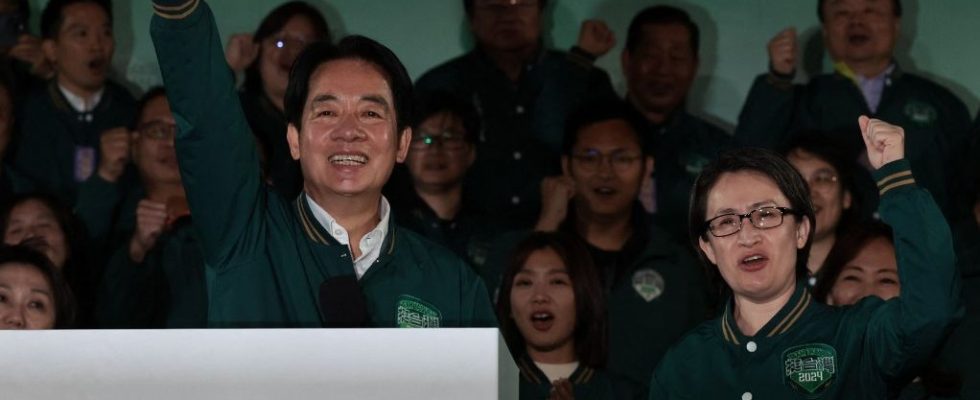Taiwan called on China this Sunday to “respect the results of the presidential election” won the day before by Lai Ching-te, who affirms that the island is de facto independent and promises to defend it against threats of reunification. “The Ministry of Foreign Affairs calls on the Beijing authorities to respect the results of the election, to face reality and to desist from repressing Taiwan,” according to a statement from the Taiwanese ministry.
Despite the vote, “Taiwan is part of China,” a spokesperson for the Chinese Ministry of Foreign Affairs said earlier on the social network X (formerly Twitter). As of Saturday evening, the communist country, which considers Taiwan as one of its provinces to be reunified by force if necessary, assured that this vote “will not hinder the inevitable trend of reunification with China” . He promised to “firmly oppose separatist activities aimed at Taiwan’s independence as well as foreign interference.”
Congratulations from 50 countries
Claiming to have received congratulations from “more than 50 countries including 12 diplomatic allies”, the Taiwanese Ministry of Foreign Affairs denounced the “absurd and erroneous comments” of the Chinese authorities. In Washington, the head of American diplomacy Antony Blinken congratulated Lai Ching-te as well as the Taiwanese for their “solid democratic system”. This message immediately caused Beijing to react, believing that it “sends a profoundly erroneous signal to separatist forces in favor of “Taiwan independence”.
But “we do not support independence”, tempered American President Joe Biden. As of Sunday, an informal American delegation composed of former National Security Advisor Stephen Hadley, former Deputy Secretary of State James Steinberg and the president of the American Institute in Taiwan Laura Rosenberger is expected in Taiwan. She is scheduled to meet Monday with “a series of leading political figures and convey the congratulations of the American people to Taiwan on the success of the elections,” according to the Institute’s press release.
The status of Taiwan is one of the most explosive topics in the rivalry between China and the United States. The United States does not recognize Taiwan as a state and considers the People’s Republic of China the sole legitimate government, but nevertheless provides the island with significant military aid. At the end of a campaign marked by strong diplomatic and military pressure from China, outgoing Taiwanese vice-president Lai Ching-te, 64, won the one-round presidential election on Saturday with 40.1% of the vote. He will take office on May 20, alongside his vice-president, Hsiao Bi-khim, former representative of Taipei in Washington.

